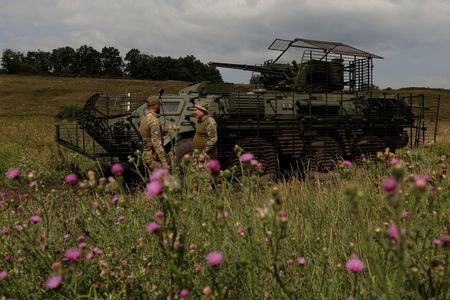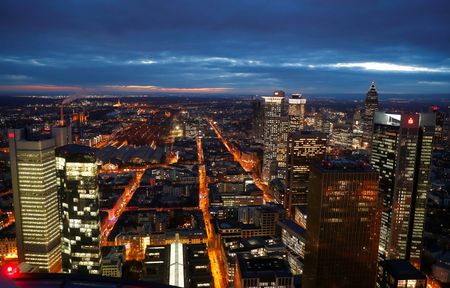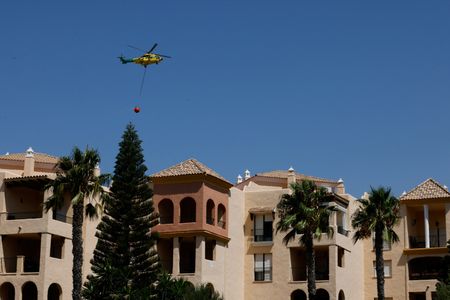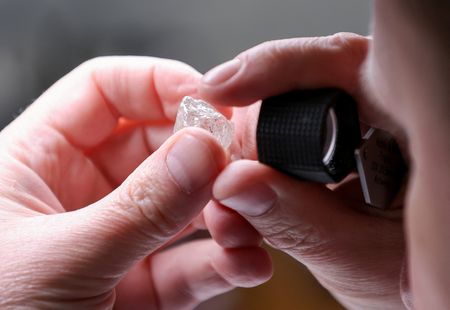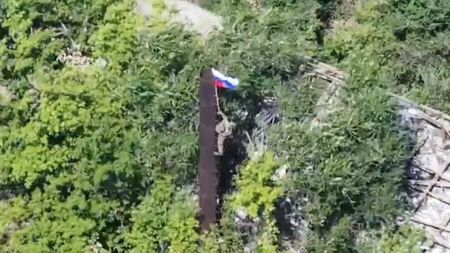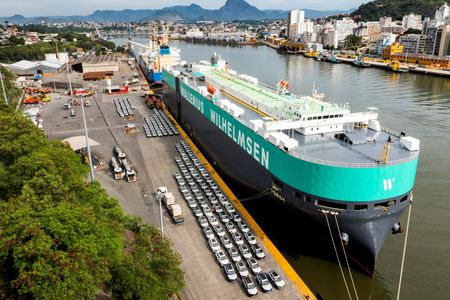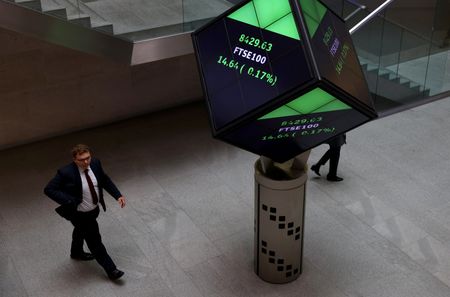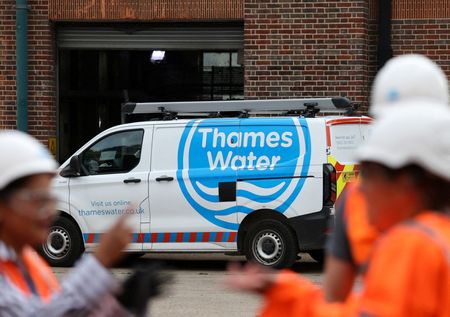By Lili Bayer and Andrew Osborn
BRUSSELS (Reuters) -Ukrainians must have the freedom to decide their own future, European Union member states said on Tuesday, weighing in ahead of talks between U.S. President Donald Trump and Russian President Vladimir Putin on Friday.
European leaders and Ukrainian President Volodymyr Zelenskiy plan to speak with Trump on Wednesday, before the summit in Alaska, amid fears that Washington, hitherto Ukraine’s leading arms supplier, may dictate unfavourable peace terms to Kyiv.
“Meaningful negotiations can only take place in the context of a ceasefire or reduction of hostilities,” the leaders of all EU countries except Hungary said in a joint statement, adding: “We share the conviction that a diplomatic solution must protect Ukraine’s and Europe’s vital security interests.”
RUSSIA ADVANCES IN EASTERN UKRAINE
Trump has said any peace deal would involve “some swapping of territories to the betterment of both” Russia and Ukraine, prompting consternation in Kyiv and European capitals as virtually all the territory in question is Ukrainian.
Ukraine’s authoritative DeepState war map showed that Russia had suddenly surged north by as much as 10 km (six miles) in two prongs near Dobropillia, close to their key target of Pokrovsk, in their drive to take full control of the Donetsk region.
Tatarigami_UA, a Ukrainian ex-officer tracking the conflict, posted on X that “in both 2014 and 2015, Russia launched major offensives ahead of negotiations to gain leverage. The current situation is serious, but far from the collapse some suggest”.
Kyiv’s military meanwhile said it had retaken two villages in the eastern region of Sumy on Monday, part of a small reversal in more than a year of slow, attritional Russian gains in the southeast.
Russia, which launched its full-scale invasion of Ukraine in February 2022, has mounted a new offensive this year in Sumy after Putin demanded a “buffer zone” there.
Kyiv and its European allies fear that Trump, keen to claim credit for making peace and seal business deals with Moscow, could in effect reward Russia for 11 years of efforts to seize Ukrainian territory, the last three in open warfare.
EUROPEANS LINK UKRAINE TO OWN SECURITY
“A Ukraine capable of defending itself effectively is an integral part of any future security guarantees,” the European statement said, adding that EU nations were ready to contribute further to security guarantees.
Zelenskiy welcomed the EU statement, adding in a message on X that Russia was preparing new offensive operations.
“Indeed, we all support President Trump’s determination, and together we must shape positions that will not allow Russia to deceive the world once again,” he said.
However, Hungarian Prime Minister Viktor Orban, Putin’s principal ally in Europe, mocked the statement from his EU counterparts.
“The fact that the EU was left on the sidelines is sad enough as it is. The only thing that could make things worse is if we started providing instructions from the bench,” Orban said on X.
“The only sensible action for EU leaders is to initiate an EU-Russia summit, based on the example of the U.S.-Russia meeting.”
Trump had been hardening his stance towards Moscow, agreeing to send more U.S. weapons to Ukraine and threatening hefty trade tariffs on buyers of Russian oil in an ultimatum that has now lapsed.
Even so, the prospect of Trump hosting Putin on U.S. soil for the first U.S.-Russia summit since 2021 has revived fears that he might put narrow U.S. interests ahead of the security of European allies or broader geopolitics.
(Reporting by Lili Bayer, Sudip Kar-Gupta, Lidia Kelly, Krisztina Than, Andrew Osborn and Pavel Polityuk; Writing by Ingrid Melander; Editing by Kevin Liffey)

